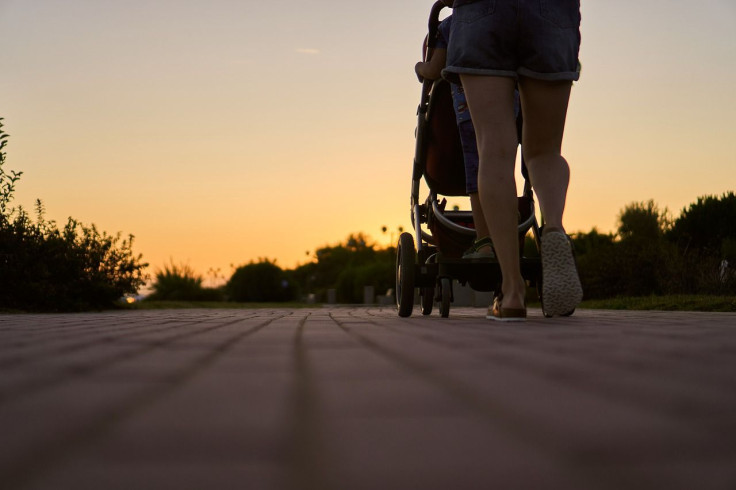Postpartum Depression: Brisk Walking May Help Mothers Ease Symptoms
KEY POINTS
- Postpartum depression is different from baby blues
- The pandemic has urged some women to look for treatments beyond the traditional ones
- Brisk walking yielded "clinically significant reductions" in postpartum depression
With some postpartum depression (PPD) treatments not quite easy to access, brisk walking may be the simple task that can help ease symptoms for some women, a new study has found.
PDD is different from baby blues, Western University noted in a news release. Although some women get the baby blues or feel sad within days after giving birth, this typically goes away within three to five days. In women with postpartum depression, however, the feelings of sadness, emptiness or hopelessness may persist for longer than two weeks, the Office on Women's Health (OWH) explained. It is a "serious mental illness" that can affect everyday life and even one's connection with their baby.
"Feeling hopeless or empty after childbirth is not a regular or expected part of being a mother," the OWH added.
Because of the COVID-19 pandemic, however, some women have looked for other treatment means apart from the "harder-to-access" common treatments for PPD such as psychiatry and medications, according to Western University.
In a new study, published this week in the Journal of Women's Health, researchers had a closer look at five studies wherein women were recommended to walk at moderate intensity for 90 to 120 minutes a week to reduce PDD symptoms. There were a total of 242 participants with a mean age of 28.9 years.
The researchers found that the activity actually yielded "clinically significant reductions" in PPD symptoms, which were retained even three months after the mothers were done with the walking program, Western University noted.
"While limited by a relatively small number of included studies, pooled effect estimates suggest that walking may help mothers manage PPD," the researchers wrote. "This is the first-time walking as treatment for PPD, an exercise modality that uniquely addresses many barriers faced by mothers, has been summarized in a systematic way."
According to the university, although some women with more severe cases may still need medical care for their condition, many women may try brisk walking even "as little as 15 minutes a day" to help ease PDD symptoms.
"Walking is fairly accessible and the great thing is, you can do it with your baby," one of the study's authors, Marc Mitchell of Western University's Faculty of Health Sciences, said in the news release. "If you can get out three or four times a week for half-an-hour or even 15 minutes a day with your baby in a stroller, our findings show it could make a really big difference in how you feel."
Study lead Veronica Pentland mentioned the barriers that still hinder many people from getting access to necessary treatment for mental health, including long-standing issues such as stigma, discrimination and marginalization.
"Walking provides a treatment that circumvents many of these barriers," Pentland said as per the news release. "There could not be a more relevant time for an accessible route to mental health treatment."
Postpartum depression is a common problem after pregnancy, with one in nine new mothers experiencing it, the OWH noted. That said, it's important to know that it can be treated.
One should ask for help if they are experiencing symptoms like having baby blues that don't go away after two weeks, being unable to care for oneself and the baby and having difficulties getting things done at home.
"If you are feeling depressed during pregnancy or after having a baby, don't suffer alone. Tell a loved one and call your doctor right away," the OWH noted.
"Treatment for depression, such as therapy or medicine, works and will help you and your baby be as healthy as possible in the future," it also said.
People can call the OWH Helpline to get more information about postpartum depression at 1-800-994-9662.

© Copyright IBTimes 2024. All rights reserved.






















